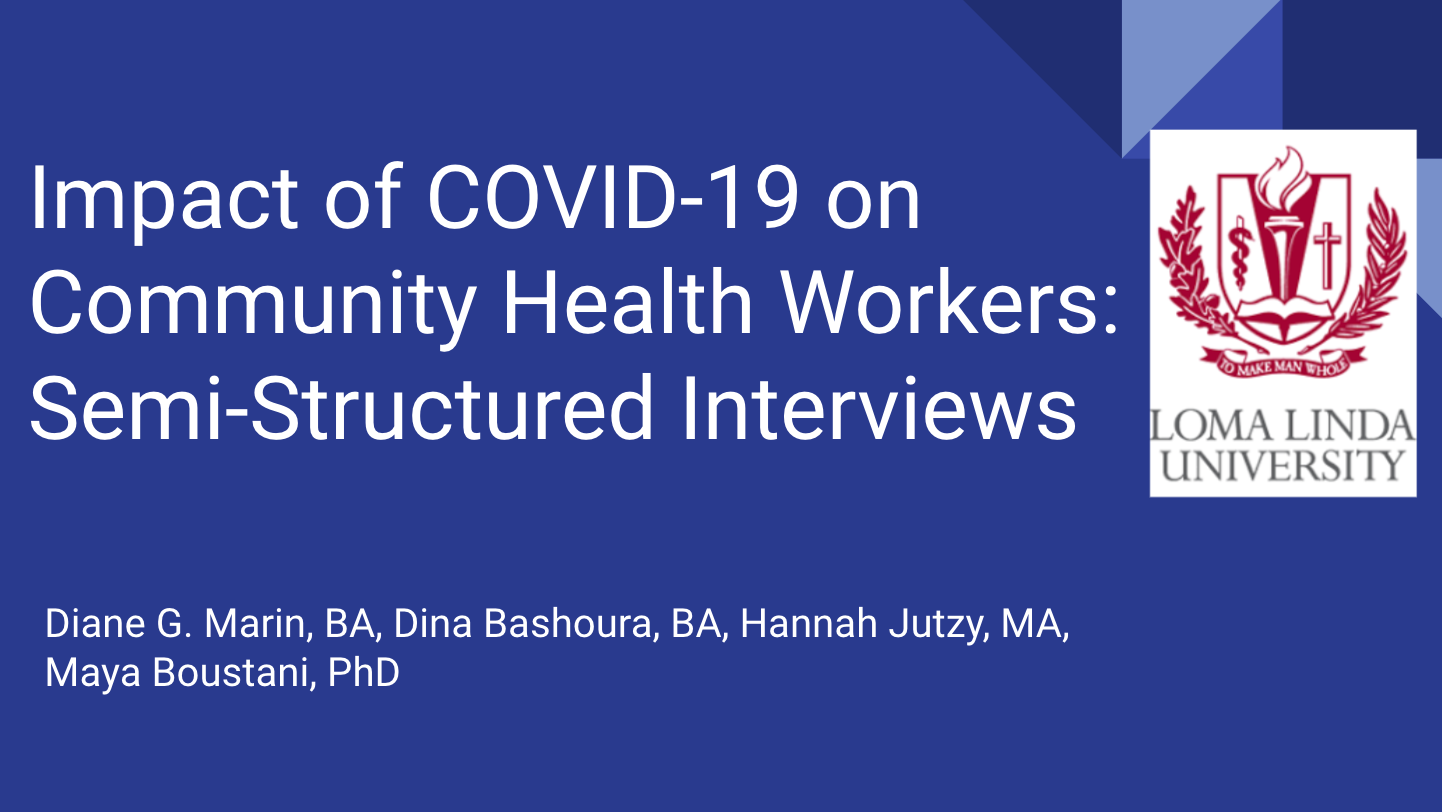Impact of COVID-19 on Community Health Workers: Semi-Structured Interviews

The COVID-19 pandemic has compounded the stress and concern to already distressed minority groups and the workforces that serve them. As members of the community that they serve, CHWs are in a favorable position to support efforts to reduce health disparities, particularly among racial and minority communities – including the impact of COVID-19 on these families. According to the Center for Disease Control (CDC), Black and Latin individuals are approximately four times more likely to be hospitalized due to COVID-19 and 2.8 times more likely to die of COVID-19 compared to White non-Hispanic individuals. Moreover, racial and ethnic minorities are experiencing disproportionate rates of unemployment which heightens their risk for homelessness. The necessary stay-at-home orders in California make access to mental health services more difficult for minority groups who may not have the resources to utilize telehealth. A deeper understanding of the impact of COVID-19 on Community Health Workers and the families they serve is important to help meet the needs of both the families and this important workforce. As such, this project explores the impact of COVID-19 on CHWs and the families they serve in San Bernardino County (Southern California). Individual semi-structured interviews were conducted with nine Community Health Workers (78% = Latin, 67% = Female). Qualitative data analysis revealed the greatest impact of COVID-19 on CHWs was stress. Seventy-eight percent of CHWs reported higher levels of stress as a direct result of COVID-19, with CHWs facing increased demands to their role while managing the adverse consequences of the pandemic on their personal lives. In addition, CHWs reported that the two greatest impacts on the families they serve were lifestyle changes and loss of resources, with reports of homelessness and no financial stability. The most reported lifestyle change was parents that stopped working to stay at home and care for their children who were transitioning to online classes. CHWs also expressed that families need mental and emotional support, access to food, and financial support. These findings highlight that workforces are overburdened and the families they serve are losing basic necessities as a direct result of the COVID-19 pandemic.



